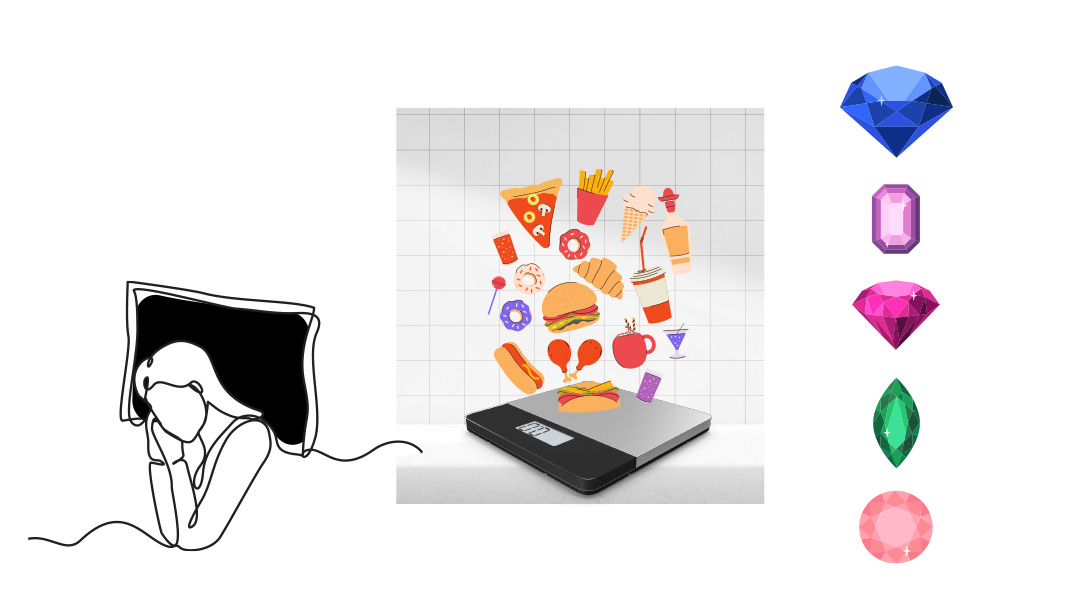Mindscapes
| July 5, 2022Spotlight on camp anxiety

Mindscapes
Abby Delouya RMFT-CCC, CPTT
Quick Tips to: Move forward from regretful decisions
You made a choice you wish you hadn’t. What now?
Take time to reflect on how you deal with regret: Do you blame yourself or others? Do you give yourself permission to forgive and move on?
Are you idealizing the outcome for choices not made? Can you admit to yourself that when you made the decision you couldn’t have known what you know now?
Find positive takeaways from the experience so it can become a positive experience that can help you when making future decisions.
Work to develop resilience and self-confidence, as well as strengthening your emunah to help you move beyond a bad decision.
Spotlight on: Camp Anxiety
For decades, psychologists have touted the benefits of summer camp. Allowing your child to learn and grow in a safe space without your direct supervision is important, and summer camp gives kids an opportunity to flex their social muscles and develop new skills.
It’s important to keep in mind that kids who experience anxiety/homesickness may have a more difficult time getting into the swing of camp. They’re used to being around their family, in familiar surroundings. Identify specific aspects of the camp experience that challenge your child. Try to understand what’s making her nervous, validate her feelings, and make a step-by-step action plan to overcome those first anxiety-filled days. Be mindful of your own emotional reactions (“Do you know how much camp is costing? You begged to go for months! And we spent the last three weeks shopping and packing — you cannot do this now!”), and instead focus on holding her fears.
Relationship Reflections: Accept your spouse’s needs
Core needs are not negotiable. We each have different needs, and we may not be able to understand our spouse’s needs, but a relationship can only thrive if we’re willing to try to meet those requirements.
Figure out what you must have in a relationship to feel loved, happy, fulfilled, and secure. Then ask the same of your spouse. Five top strategies to coming toward your partner and honoring his needs, while protecting your own boundaries, are:
Communicate that you understand your partner’s needs and why they're important to him.
Reiterate why working on this is important to you.
Be clear on your own boundaries and limits in meeting the need.
Communicate what your partner can expect from you going forward.
Check back with your partner that he understands your limits and is okay with them.
When our needs are consistently met, trust and security are built. Acknowledging your spouse’s needs as important and relevant, even if you can’t meet them all the time, builds friendship. Give him a warm heads-up when you can't meet his needs, i.e., “Hi, honey, I just wanted to let you know that I’m unable to talk today on my commute home; I know you look forward to that time, and I love it too, but I have to make some work calls. I’ll see you at home in about an hour.”
In the News:
In light of the recent Nekadesh event, it can be reinforcing to see our Torah values/insights reflected in the secular world of psychological research. Parental Phubbing is the psychological term for when a parent ignores her child while using her mobile phone. Research shows that when parents favor their phone over listening to their child, it can accelerate feelings of isolation and depression in the child. Children who feel emotionally neglected may struggle with anxiety, poor grades in school, substance abuse, and even suicidal tendencies.
Abby Delouya RMFT-CCC, CPTT is a licensed marriage and family therapist in private practice with a speciality in trauma and addiction. Abby lives in Monsey, NY and maintains her practice in Canada.
What Do You Want?
Shira Savit, MA, MHC, INHC
IF you’re struggling with your eating, you probably have a clear vision of what you don't want to happen. “I don’t want to be snacking the whole afternoon,” “I don’t want to finish all the dessert,” “I don’t want to feel out of control around food,” and, of course, “I don’t want to feel my clothes getting tighter on me!”
One of the first questions I ask new clients is what their goals are. I usually get a long list of “don’ts.” Working together, I explain, we take the don’ts and switch them to dos.
What do you want in your life? What do you want in your day? What do you want in your relationship with food? When we switch the don'ts to dos, our mindset becomes more positive and constructive; we’re better equipped to deal with our food challenges and emotional well-being.
For example, if you know that you don't want to be munching at night, create a do vision for what you want your night to look like; it may include self-care activities, getting to sleep earlier, winding down with a book. Make sure your do vision is realistic in terms of your needs and energy level.
As long as we try our best, knowing that we still might turn to food at times (because we’re not aiming for perfection), our do vision helps us develop custom-tailored goals that are gentle and attainable.
Shira Savit, MA, MHC, INHC is a mental health counselor and integrative nutritionist who specializes in emotional eating, binge eating, and somatic nutrition. Shira works both virtually and in person in Jerusalem.
Focus Your Fire
Dina Schoonmaker
People with passionate personalities can burn things. They can use their inner fire negatively and burn people with their criticism or anger. Or they can channel it for good and burn problems.
When finding yourself getting angry, ask yourself: What am I burning — and what do I want to burn? For example, I may be angry and burning somebody for not spending enough time with me when really, I want to burn out the distance in our relationship. I may be taking out my anger on my children on a hectic Friday when I really want to burn out the Erev Shabbos chaos.
Focus your fire in the right place.
Dina Schoonmaker has been teaching in Michlalah Jerusalem College for over 30 years. She gives women’s vaadim and lectures internationally on topics of personal development.
(Originally featured in Family First, Issue 800)
Oops! We could not locate your form.







